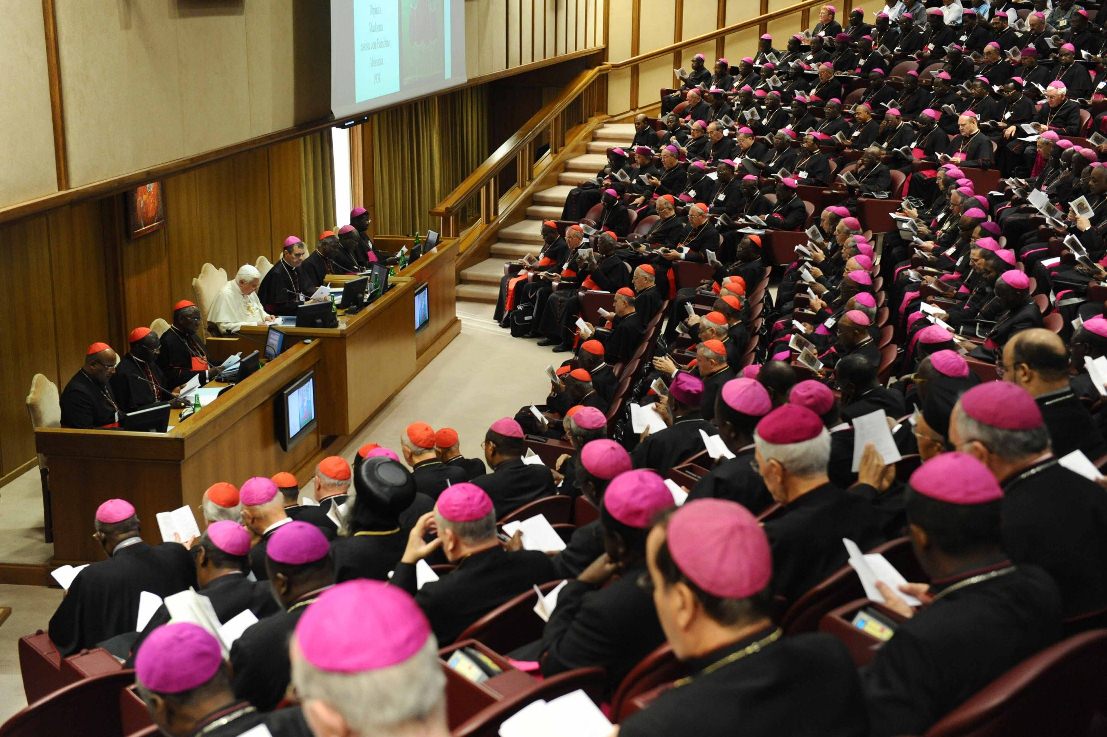Pope Francis’ first homily was said off-the-cuff, in Italian and featured three simple points: walk in the light of Christ, build up the church, confess.
The line that has seemed to be most quoted has been this one:
When we walk without the cross, when we build without the cross and when we proclaim Christ without the cross, we are not disciples of the Lord. We are worldly.
And he likened the church to becoming just another NGO – a compassionate organization that doesn’t really proclaim Christ. I think it’s true – I think one of the reasons people leave the church is that it just doesn’t really matter. There are good kind people who doing very loving and generous things in all kinds of places, many of which are not church. And if that’s the case, then doesn’t the church itself become a social club? That’s been how I’ve described it, though I rather think Pope Francis’s NGO analogy works better.
What I’m more interested in at the moment, though, is how few news outlets discussed the third point in his homily: confess. Confess the times we don’t walk in the light of Christ, the times we have been worldly.
For Americans, it’s something of an old-fashioned word and it may seem jarring in light of the other things he has done so far. Pope Francis’ official biographer has thus far suggested that the pope’s choice of riding busses, taking plain cars, wearing a simple cross – and having celebrated masses with ex-prostitutes when he was cardinal – are his ways of being with the people, and suffering with the people.
So what is this bringing confession back into play? I imagine many might say, “That’s not “with the people”; that’s against the people. Confession, like the pill, has largely become one of those things where you kind of know what the church teaches but you largely ignore it out of some sense that it’s a misguided idea.
Of course, the homily was made to churchmen, and so calls to mind immediately the need to confess in relation to the sex abuse scandal among other things. But the thing is: don’t we all – lay and clergy alike – want some confession? We’ve been crying for a breath of fresh air, and isn’t it in part about wanting our bishops and clergy to be honest with themselves and us – and confess?
In that sense, it’s no old-fashioned word, but a real and present necessity. But here’s the kicker: if we Christians expect confession from bishops and cardinals only, then we really are being hyper-clerical ourselves, putting clergy on a pedestal and expecting them to be all that we can’t or won’t be.
So I do not think Pope Francis will let us lay people off easily – or at least he shouldn’t. Now I should say: I am myself one of those Catholics who doesn’t go to confession much at all, and who as a convert from Protestantism has found it an odd idea. So take the following in that light.
But confession doesn’t have to look like our grandmother’s confession anymore, either. Confession shouldn’t be the laundry list of sins that gets so parodied in tv, plays, and movies.
Confession is more interesting than that, I think. (And by the way, I know there are lots of reasons bandied about for why Catholics stopped going to confession – everything from the teachings against birth control, to the church’s lack of relevance, to the simple fact that confessions aren’t offered at enough of a variety of times. I’m not going to get into all those reasons here – mostly because I’m not sure that the reasons Catholics left are the same as the reasons why we should think about it some more.)
Here’s the main reason I’m thinking about the importance of confession right now. We don’t think of sin much anymore and that has caused us to think about people more abstractly.
One author I’ve read recently suggests that in an era where God is seen as either dead or missing, perhaps sin can’t quite exist either. Sin has instead given way to psychology, some argue, where we spnd more time analyzing actions and why people do them, than we do naming sins. I think psychology and its attendant fields have given us some good things – but it’s also made people appear very abstract, especially among those who use, and are familiar with psychological terms but aren’t themselves psychologists. Educators refer to students as “those ADHD kids” and that “Asperger’s guy” rather than by their names. People who commit crimes often get summarily dismissed as having bipolar and schizophrenia or some such, with perhaps some Freudian parental abandonment or pining after mother love thrown in. Whenever someone doesn’t seem “quite right” to us, we’re pretty likely to assign a diagnosis and try to fix that person, rather than accept the good with the bad. The elderly get to be named as “the cranky guy” or “the depressed guy”.
Don’t get me wrong – I think it’s important to have these diagnoses made in appropriate ways and with appropriate care given. But I also think it’s important to look at how our language and categories here make people into abstract cases to be fixed.
Abstract language is not “with the people”. It’s certainly not the way I want to think about people relating to me. So for all the ways in which Pope Francis has been “with the people” thus far, I wonder if “confess” is yet another way.
So I wonder: if we were to think about confession – and not the laundry list of sins but the real and deep ways in which we make people abstractions – would we start loving each other better? Would we start forgiving more? Would we start feeling loved more?




Jana, thank you for this excellent post. As much as I am swept away by all the posting about Pope Francis’ humility and presence among the people God, I was hoping to reorient myself this morning, and your post has helped me tremendously. I had read the homily text yesterday, but in the swirl of activity in our parish office and all the activity online, it had not yet made its way fully into my head and heart. Thank you for facilitating that.
Off to share this with others.
Jana, this is beautiful, and I think the call to think more about the confession of sin is really important, but I don’t think that’s what Pope Francis’s homily was about. It seemed to me that he was talking more about confession (or maybe better said, profession) of our faith in Christ. Maybe we read different translations, or different summaries? http://www.catholicherald.co.uk/news/2013/03/14/full-text-pope-franciss-first-homily-in-the-sistine-chapel/
I read it in Italian so the fault of translation is definitely mine. Edit to add: I went to double check and the Italian word used is “confessare” not “professare” so it’s just interesting that the Herald uses the latter word. I don’t know what to make of that: I have understood the distinction in those two words to be relatively similar between the two languages but I could be wrong. I do think that the references to the devil, and trying to live blameless in the Lord lead me to my own version.
That said, “confess’ is always a both/and word (thanks, Augustine!) – and I think both the confession of God’s grace is certainly there though not the thing I chose to focus on. I really do see this as a sharp word to the cardinals, etc. in attendance in relation to the scandals facing the church at the moment.
I’m also doing a riff here – the “confess” part I’m focusing on in relation to lay people is not part of the homily but my own midrashing….
Adding in: the official translation is “profess” at the Vatican website. It wasn’t up when I drafted this so – again – the fault in translation is mine. I still find the devil/blameless pieces to be suggestive.
Fair enough! I didn’t even try to read it in Italian.
Isn’t the rule that if there are “those things where you kind of know what the church teaches but you largely ignore it out of some sense that it’s a misguided idea” you are a Protestant or a heretic? Perhaps this is part of the pastoral treatment of heretics, a noble pursuit to be sure. But it seems to me to be damning the sacrament with feignt praise and perfectly willing to set up an alternative magisterium. Mainly implication and tone, and not explicit, but its hard to miss.
RPritchie – I’m not entirely sure what you’re trying to say here – I’m against that kind of view of confession and especially of avoiding confession- trying to say instead that we need a more robust view, as I aim to develop in the rest of the piece – and trying to make a case that we all ought to be going to confession more. Pope Francis’s homily is an occasion to think about sin and confession in much more deep ways than we have done. I don’t think that’s an alternative magisterium, but a fuller participation in the church.